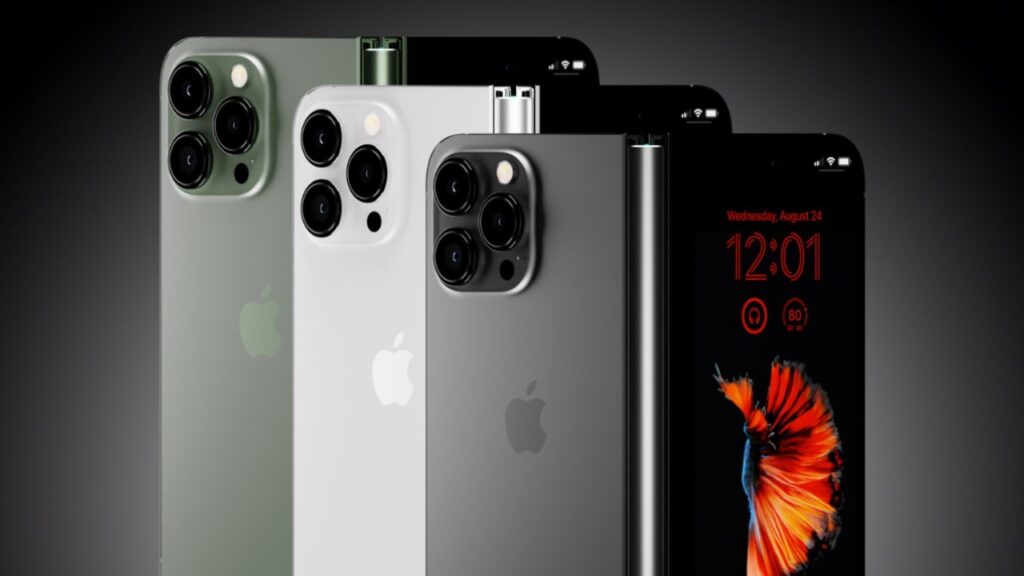Apple has reportedly decided to shift its focus from developing a folding iPad to prioritizing the much-anticipated iPhone Fold. This strategic move, revealed on July 3, 2025, aligns with the tech giant’s aim to remain at the forefront of smartphone innovation, leveraging its expertise in design and technology to introduce a new era of foldable devices.
The decision to pivot away from a folding iPad comes as Apple seeks to capitalize on the growing consumer interest in foldable smartphones. The iPhone Fold is expected to incorporate familiar design elements that Apple users have come to love, while introducing groundbreaking features that set it apart in the competitive foldable market.
Why Apple Chose the iPhone Fold Over a Folding iPad
The choice to focus on the iPhone Fold rather than a folding iPad reflects Apple’s strategic analysis of market trends and consumer preferences. Foldable smartphones have gained significant traction, with competitors like Samsung and Huawei already offering successful models. By entering this arena, Apple aims to capture a share of the burgeoning market and meet the demands of tech-savvy consumers seeking versatile devices.
According to industry experts, the decision is a calculated one. “Apple’s strength has always been in its ability to redefine existing markets,” said tech analyst Sarah Thompson. “The iPhone Fold represents an opportunity to do just that, by offering a device that combines the portability of a smartphone with the expanded functionality of a tablet.”
The Evolution of Foldable Technology
Foldable technology has evolved rapidly over the past few years, transitioning from a novel concept to a mainstream product category. Early iterations faced challenges such as durability issues and high production costs. However, advancements in materials and engineering have addressed many of these concerns, paving the way for more reliable and affordable foldable devices.
Apple’s entry into the foldable market is expected to further accelerate this evolution. The company’s reputation for quality and innovation could set new standards for what consumers expect from foldable devices. “Apple’s involvement is likely to push the entire industry forward,” noted John Kim, a technology researcher at Stanford University. “Their focus on user experience and seamless integration will be key differentiators.”
Implications for Apple’s Product Line
The introduction of the iPhone Fold could have significant implications for Apple’s product lineup. It may lead to a reevaluation of the roles of existing devices, such as the iPad and MacBook, as consumers gravitate towards multifunctional devices that offer both portability and power.
Moreover, the iPhone Fold could influence Apple’s design philosophy across its entire range of products. The integration of foldable technology might inspire new form factors and user interfaces, potentially leading to innovations in other product categories.
“The iPhone Fold is not just a new device; it’s a new way of thinking about how we interact with technology,” said Mark Peterson, a former Apple engineer. “It has the potential to redefine the boundaries between devices.”
Looking Ahead: The Future of Apple’s Foldable Technology
As Apple prepares to launch the iPhone Fold, industry watchers are keenly observing how the company will position itself in the foldable market. The success of the iPhone Fold could pave the way for future innovations, including potential advancements in augmented reality and wearable technology.
Meanwhile, competitors are likely to respond with their own advancements, leading to a dynamic and rapidly evolving market landscape. “The introduction of the iPhone Fold is just the beginning,” said Lisa Chen, a market analyst at TechInsights. “We can expect to see a wave of innovation as companies strive to outdo each other.”
In conclusion, Apple’s decision to focus on the iPhone Fold marks a pivotal moment in the company’s history. By embracing foldable technology, Apple is poised to once again redefine the boundaries of consumer electronics, setting the stage for a new era of innovation.
